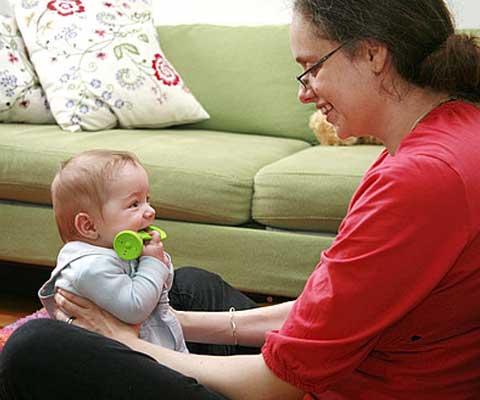Supporting Strategies for Speech, Language and Communication course for Dietitians


This session will provide an overview of the generic advice that would typically be offered by a speech and language therapist in the UK when advising parents of children with speech and language delay. Much of this advice is transferable across a range of conditions and has been shown to positively influence spoken language acquisition in children developing typically and atypically.
Learning Objectives
By the end of this session you will be able to:
- Identify the key techniques that have been found to promote communication skill development
- Recognise the environmental and contextual features needed for optimal language development
- Differentiate between fact (evidence) and fiction (opinion) when offering advice to parents
The second half of the twentieth century saw a significant change in the beliefs about the role of language ‘input’ in child language acquisition, and consequently the value of finely tailored advice to parents and others.
Before commencing this session you should complete the following HCP sessions:
- Speech Language and Communication Needs/Child as Listener and Speaker Part 1: Non-verbal Aspects of Communication (402-0034)
- Speech Language and Communication Needs/Child as Listener and Speaker Part 2: Verbal Aspects of Communication (402-0010)
- Speech Language and Communication Needs/Typical Development Part 1: From Birth to Babble (402-0035)
- Speech Language and Communication Needs/Typical Development Part 2: First Words and Early Sentences (402-0036)
Maggie Cooper is a former Head of the Department of Applied Language Sciences at the University St Mark and St John, Plymouth and Programme Lead for the BSc Speech and Language Therapy, the only NHS commissioned SLT education in the South West region.
Before taking up her academic career, Maggie spent more than 20 years in clinical practice as a speech and language therapist and part-time researcher. Her professional expertise is with early language acquisition and much of her clinical experience was situated in communities challenged by extreme social disadvantage. Maggie’s years as a clinician informed her research interests in early word learning and its relationship to maternal sensitivity, and previously in exploring alternative and innovative models of service delivery to meet the needs of inaccessible communities. Maggie was involved in the early Sure Start initiatives as co-author of one of the trailblazer bids and Executive Director of one of the first projects in the country, situated in Plymouth.

- Mental Health Promotion in the Perinatal Period co...
- Posted By eIntegrity Healthcare e-Learning
- Posted Date: 2024-10-31
- Location:Online
- This session aims to raise awareness regarding the factors that predispose women to mental ill healt...
- Preconception Care course for Dietitians
- Posted By eIntegrity Healthcare e-Learning
- Posted Date: 2024-10-31
- Location:Online
- This session will introduce you to the concepts of preconception care, including opportunities for p...
- Injury Prevention course for Dietitians
- Posted By eIntegrity Healthcare e-Learning
- Posted Date: 2024-10-31
- Location:Online
- This session aims to raise awareness of the causes, risk factors and context of unintentional child ...
- Dental Health Promotion course for Dietitians
- Posted By eIntegrity Healthcare e-Learning
- Posted Date: 2024-10-31
- Location:Online
- This session aims to enhance your knowledge and skills regarding oral health and factors that predis...
- Obesity Prevention in Children course for Dietitia...
- Posted By eIntegrity Healthcare e-Learning
- Posted Date: 2024-10-31
- Location:Online
- This session examines the key lifestyle areas that are important when tackling obesity prevention, a...







